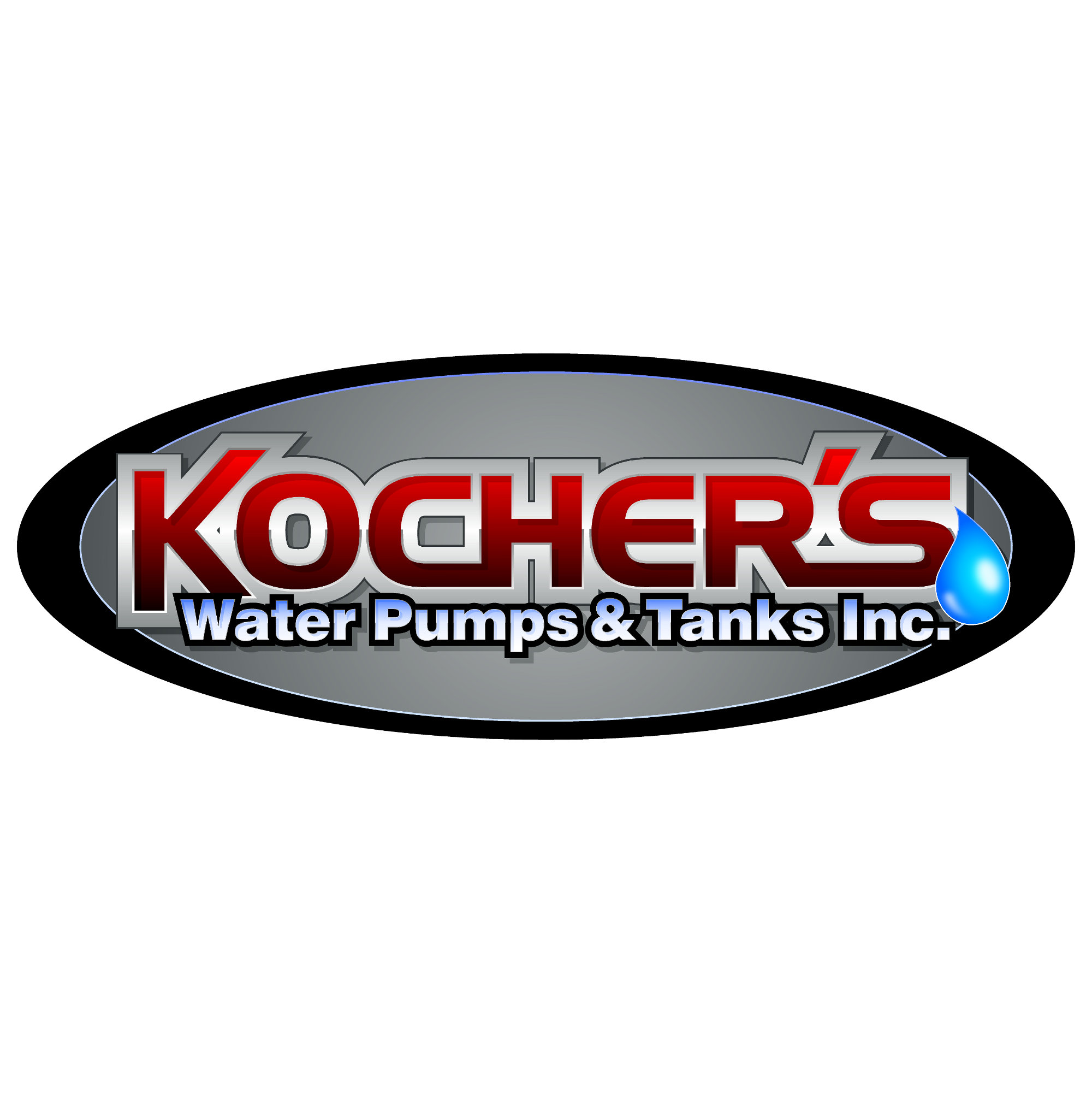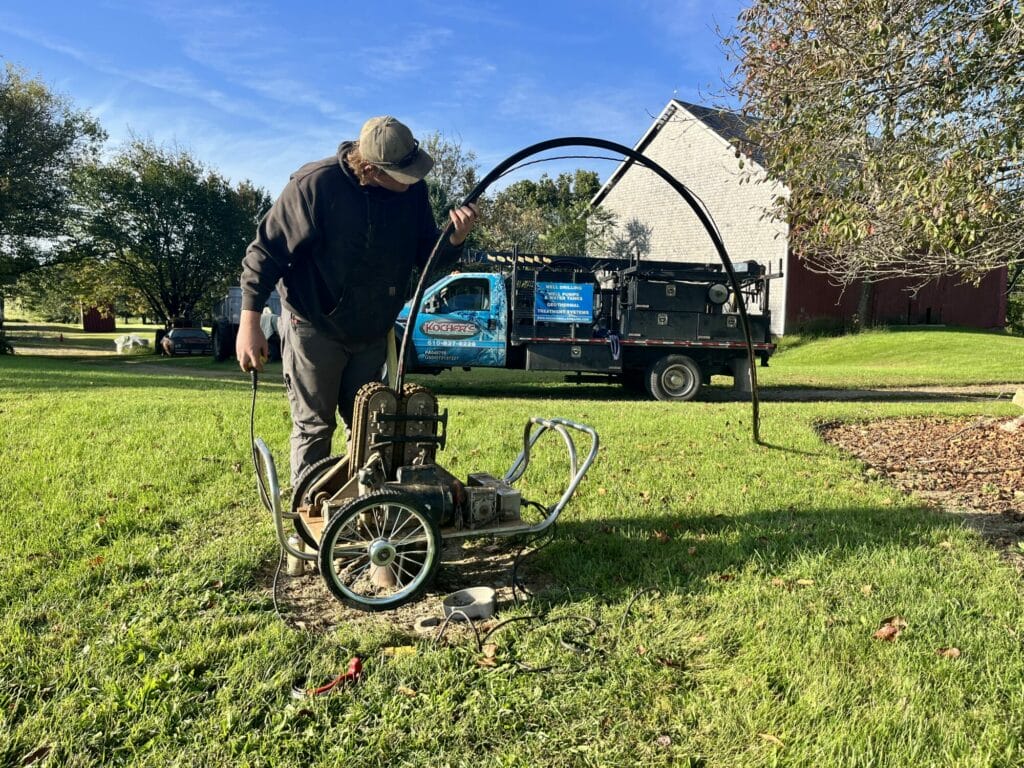Water wells are a primary source of water for many homeowners, especially in rural areas. Regular inspections are essential to ensure the safety, quality, and functionality of the water supply. With a well inspection, you can:
- Identify potential issues before they escalate.
- Ensure the water quality meets health standards.
- Extend the lifespan of your well system.
🛠️ Need a well inspection ASAP? Don’t scroll further! 🛠️
👉 Book with Kocher’s NOW! 👈 Experience quality, speed, and peace of mind.
Private Well: The Heart of Rural Homes
A private well is more than just a hole in the ground. This lifeline provides well water that’s often fresher and more natural than city water. However, owning a home with a private well comes with its own set of responsibilities and considerations[1]:
- Regular Maintenance and Water Safety: Ensuring the water is safe to use is paramount. This involves regular maintenance, periodic water tests to check for contaminants, and ensuring the well cap is securely in place to prevent contaminants from entering. It’s crucial to regularly check the water quality.
- Water Quality and Testing: A well inspector can provide a comprehensive home inspection of the well system, examining the well equipment and testing the water quality. Taking a water sample periodically ensures that the water is safe to drink. Moreover, the National Ground Water Association recommends maintenance and water testing at least once a year.
- Being Vigilant: Well owners should look for signs indicating a need for a well repair or inspection. This includes monitoring the water pressure, checking the water level, and being aware of any changes in the taste or appearance of the water. f there are any issues, it’s essential to consider professional water well repair.
- Understanding Your Well: It is essential to know the well’s depth, the condition of the well casing, and the volume of well water it can produce. If you’re buying or selling a home with a well, a well inspection is conducted to ensure the well is in good working condition.
- Cost Considerations: How much does a well inspection cost? While the average well inspection in the U.S. ranges between certain prices, factors like the property’s location, the condition of the well, and additional services like water treatment can influence the cost.
- Professional Assistance: If you’re considering drilling a new well or need advice on the current one, a water well systems professional can guide you. They can provide insights on the water level, water treatment options, and even the cost of a new well if required. Considering well services is also a good approach.
- Safety First: Before making a purchase decision, especially if you’re buying a property with a well, ensuring your water source is safe is crucial. The Safe Drinking Water Hotline can provide additional resources and information.
In essence, owning a well is a significant responsibility, but with regular checks, understanding its workings, and ensuring its safety, it can be a valuable asset to any property.
The Cost of Peace of Mind: Well Inspection Costs
The average cost of a well inspection in the U.S. ranges from $250 to $550. Factors influencing the cost include:
- The depth and complexity of the well.
- The region or state where the well is located.
- Additional services, such as water quality testing, can add $100 to $300 to the overall cost.
Septic Systems and Their Connection to Wells
Many homes with private wells also have septic systems. These underground wastewater treatment solutions are standard in areas without centralized sewer systems. Here’s what you need to know:
- Septic systems treat wastewater from a single property.
- They are environmentally friendly, as they don’t contaminate groundwater.
- Regular septic inspections ensure they work hand-in-hand with your well without issues.
What to Expect During a Well Inspection
When you schedule a well inspection, it’s not just about checking the water. The entire system undergoes a thorough evaluation:
- The submersible pump’s operation and the water recharging into the well are checked.
- The pressure tank, usually located in the basement, is examined.
- Mechanical defects, such as rusting tanks or faulty gauges, are identified.
- The water pump’s electrical components, if any, are tested for consistency.
Buying a Home with a Well: What You Need to Know
If you’re considering buying a home with a private well, it’s essential to[2]:
- Test the water to ensure it’s safe to drink.
- Check the well cover and casing for any visible damages.
- Understand the maintenance requirements and potential costs involved.
- Ensure the well meets state-specific regulations and standards.
Well and Septic System: Ensuring Longevity and Safety
Water is a vital resource, and ensuring its safety and quality is paramount[3]. Regular well inspections are an investment in your health and the longevity of your well system[4]. By understanding the inspection process, costs, and what to expect, homeowners can make informed decisions and enjoy the peace of mind that comes with knowing their water source is safe and reliable.
🔍 Looking for Expert Well Inspection? Choose Kocher’s! 🛠️
At Kocher’s, with years of experience and a team of dedicated professionals, we ensure:
- Thorough inspections.
- Expert advice on maintenance and repairs.
- 24/7 emergency services.
- Competitive pricing with no hidden costs.
- A commitment to ensuring the safety and longevity of your well system.
Don’t wait! Ensure the safety and quality of your water. Schedule your well inspection with Kocher’s today!
Sources:




